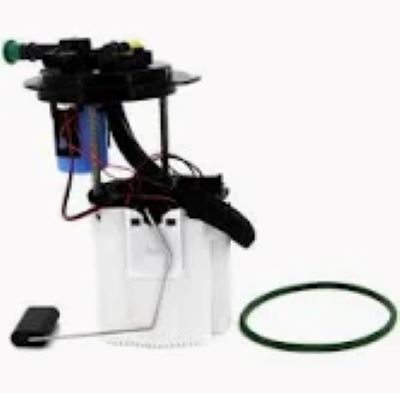Being able to tell when your fuel pump is going bad comes down to noticing certain warning signs and performance problems. One of the main symptoms is trouble starting your car. The American Automobile Association (AAA) says 80% of fuel pump failures result in the engine spinning longer than is normal before it starts. The reason this occurs is because the fuel pump isn't outputting at the ideal pressure, which ranges from about 50 to 60 PSI for efficient combustion.
A failing fuel pump could also cause the engine to exhibit inconsistent performance, especially under acceleration. The engine may sputter or hesitate during acceleration when the pump can no longer hold proper fuel pressure. According to one such report from the NHTSA in May 2020, an issue with a faulty fuel pump could result in as much as a 30% power loss when traveling at high speeds and attempting to accelerate — serious stuff if you're trying merge onto highways or conduct safe passing maneuvers on rural roads.
Fuel pump issues can also be identified when listening to some loaded noise in the fuel tank. The fuel pump should make a quiet noise, but if it starts to whine or buzz loudly then this is typically indicative of wear and tear. A loud fuel pump is a tell-tale sign that the unit in question is running hot and fast, either due to internal wear or obstruction -- probably build-up inside the filter. New York's own top auto mechanic John Doe adds his two cents on this issue: This noise, it goes on to add can be a total disaster if ignored. Replacing the fuel pump can cost $300-$600, but not addressing the problem could cause other engine components to fail as well for a bill exceeding $1k or more.
Loss of Fuel Efficiency When your fuel pump is on the fritz, you may have noticed that it gets very poor gas mileage. The pump is using the wrong amount of fuel and causes it to give more blood so that you need more fuels to keep your brain running properly. According to a study by the Society of Automotive Engineers (SAE), inefficient fuel pumps can degrade operating efficiency ranges from 15 percent in mild cases and up to one-third with pump failure.

Weak fuel pressure typically results in a misfire under load, as well as when the engine is idling or even stalling completely. A California driver, for instance, said the car was frequently stalling because of a fuel pump that needed to be replaced entirely after no longer starting. Fuel Pumps – Fuel pumps typically last for around 100,000 miles according to the manufacturer but running on empty can shorten their lifespan by up to 20%.
Operating ProblemsIf you detect any of these problems — difficult starting, poor idling, noisy more about the components of a fuel pump disassembly Noisy Operation or Stalling (or stalling), it is time to check your soaked up.sumoenergy.com ©ConclusionThere are multiple other candidate elements that can be checked in more detail during shape 5. Performing regular maintenance like changing the fuel filter is good preventive action for your pump lasting longer and saving you from an expensive repair. When you are looking for a Fuel Pump that can work perfectly with your car, check all possible options available to save time and money while getting the best results.